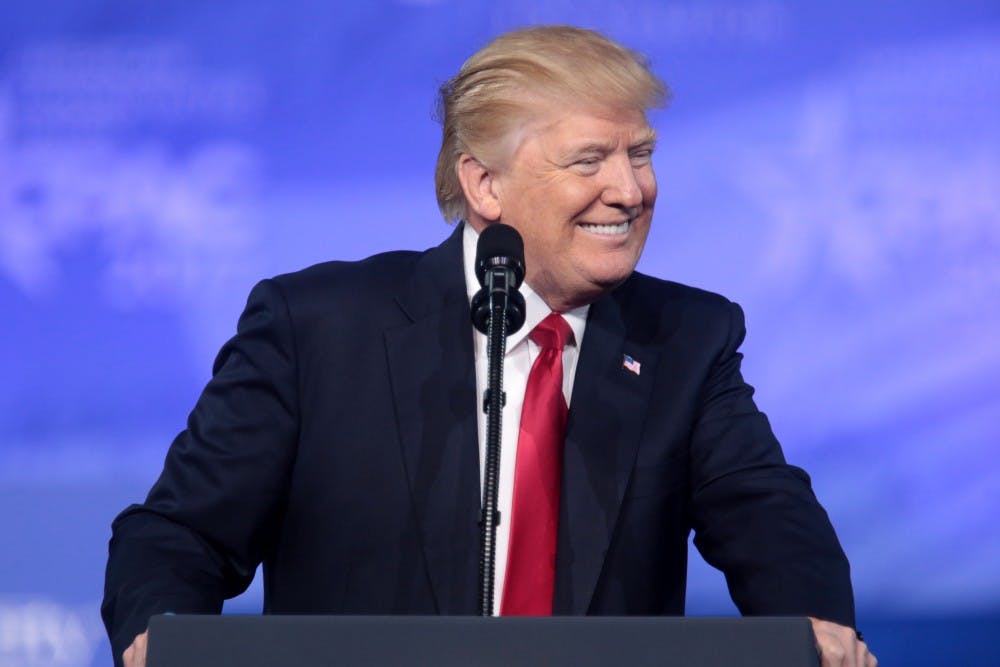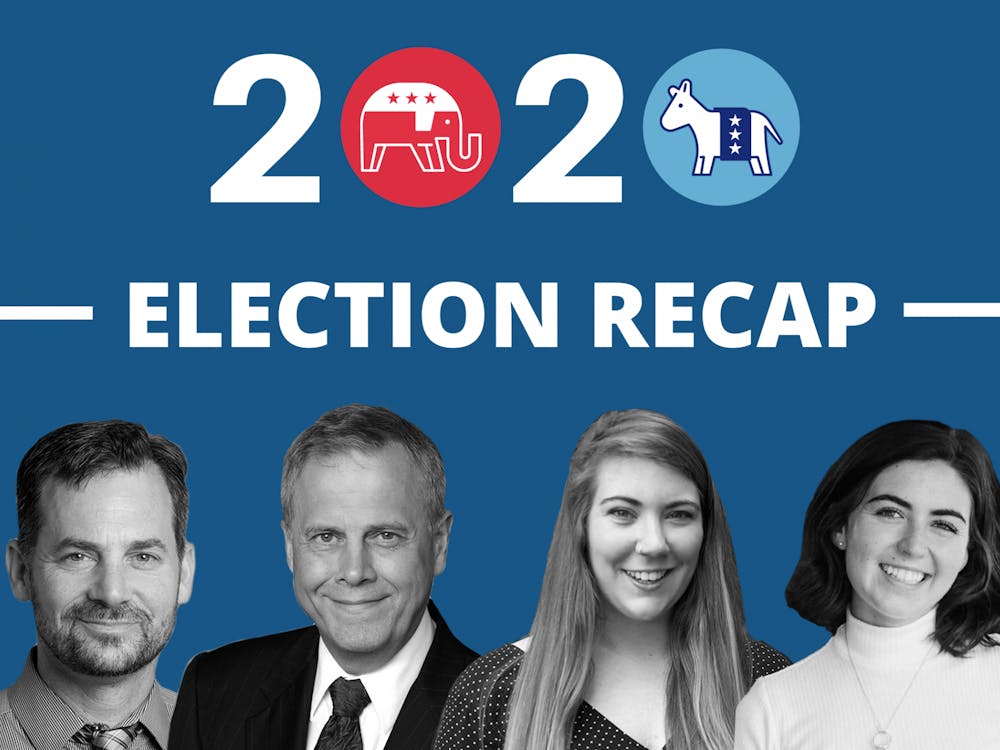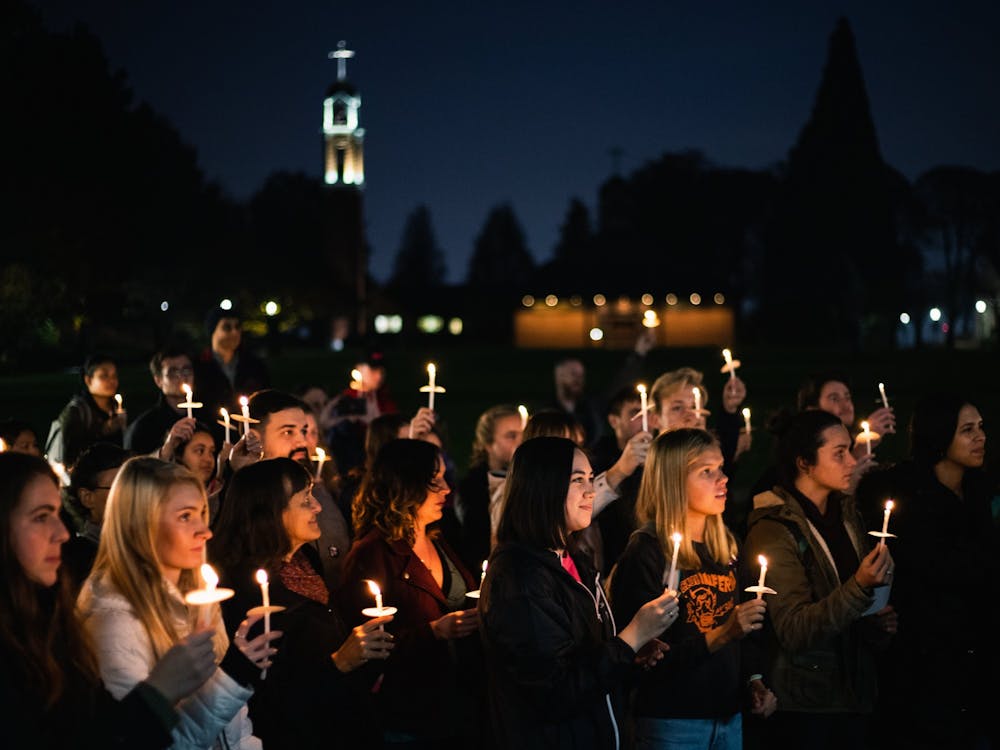Since Trump was inaugurated…
This past weekend marked one year since the president was sworn into office. Since President Donald Trump took over the Oval Office, he and his administration have altered or done away with many policies of the Obama era.
Notably, Mr. Trump has added bans to travel, immigration and transgender bathroom status, passed a tax bill and continued as an active user of the microblogging site Twitter. Like the presidents before him, Trump has had to react and respond to natural disasters and mass shootings, although many have blasted Trump’s approach for lacking in delicacy.
You may already know all of this. Or you might have picked up on bits and pieces here and there. As a news organization, we know it can be difficult to keep track of all the White House news, but it is well worth your time, and ours, to try. The way Trump governs now and for the rest of his presidency will affect us long after he’s left office whether we like it or not.
We’ve created a cheat sheet on the issues we believe will most affect our generation now and in the years to come. Here are a few things you might have missed during the 2017 news cycle that will affect us long after we leave The Bluff.
DACA (Deferred Action for Childhood Arrivals)
What it is: Here’s a quick rundown of the details. DACA is a program implemented by former President Obama in 2012 that shields people brought into the United States without documentation at the age of 16 or younger from deportation.
Trump announced his intent to get rid of DACA and not allow DACA recipients to renew their eligibility.
Why we should care: Several of our fellow Pilots are undocumented and they are apart of our UP family. Undocumented students here at UP are intrinsically valuable, not just for their additions to our working economy. Although we may not always know who is or is not undocumented, DACA recipients have grown up here and worked for everything they have.
Net neutrality
What it is: As Save the Internet explains, net neutrality is basically the online thing that ensures free speech (aka our First Amendment) remains as free as possible.
When you go online, you expect to have equal access to all sorts of content, right? You don’t expect to be blocked from anything, or for one site to load faster than another. You don’t think about your internet provider tinkering with your internet access or deciding which sites you can use. Essentially, you expect net neutrality.
Why we should care: We said “sayonara” to net neutrality when the FCC (Federal Communications Commission) kissed it goodbye back in December. While Trump is perhaps not directly responsible for this, the Republican party is in charge of the FCC at the moment with three Republicans and two Democrats on the commission. Considering Trump is a Republican president and distrusts most media, it is fair to believe he had some influence over the FCC’s decision.
Without net neutrality, internet users are at the mercy of their providers. Big companies can pay to make their content load faster and be more accessible, and small businesses will suffer. Without net neutrality, it is possible our content will be censored heavily and for unpopular or minority voices to be suppressed by disapproving providers. This is far from guaranteed to happen, but it is definitely more likely without net neutrality and Title II in place.
A new tax bill.
What it is: A new tax bill that cuts taxes on the rich. While this is obviously happy news for the rich, corporations can also celebrate with lower taxes as well. In theory, the lower taxes will inspire corporations to move operations to the U.S. and create jobs. However, factoring in the tax money the government will not collect from these businesses with the opinions of economists, the growth will stop eventually and plateau.
Taxes will actually be lower for everyone, but the cuts will end for some after an eight-year period. The tax bill takes an axe to the Affordable Care Act (also known as the ACA or Obamacare), as in 2019 no one will be required to purchase health insurance or be penalized for not purchasing it. So...people will still have medical problems, they just don’t have to be insured for care.
The tax bill will also change the way “uninsured” write-offs are processed. Before the bill, you could write off natural disasters (think wildfires and earthquakes), but with the bill, the government has to federally declare (think Hurricanes Harvey, Irma and Maria) a disaster for you to be able to write if off. *A write-off lowers the amount of income that will be taxed.
The final version of the tax bill allows college students to deduct “up to $2,500 for interest on student loans,” and graduate students won’t have to pay tax on tuition waivers.
Why we should care: For those of us with an entrepreneurial spirit, the lower taxes for businesses could be a boon down the line. In the short term, everyone will have lower taxes, but we’ll feel it when they expire in eight years.
Changing the Affordable Care Act is a big deal (4 million people will lose coverage by 2019) because it’s a step backward for anyone rooting for universal healthcare in the U.S. Trump has been trying for some time to trash the ACA, so this is a flagship moment for him and one accomplishment he’ll likely tout on the campaign trail for years to come.
Many UP students come from California, Oregon and Washington — states that have seen wildfire devastation recently. So this is a pretty big deal unless the natural disasters just stop a-coming. Also, note California is prone to earthquakes. If the government does not declare them natural disasters, we won’t be eligible for write-offs. The Daily Beast points out that federally declaring may become a political bargaining chip the president gets to play with.
Health care
What it is: The GOP (the majority party in the House and the Senate) would really love to alter the whole health care system — by hitting delete on the ACA — and apparently changing the way we speak about the human body.
You can say what you want about Republican politicians, but when it comes to health care they are determined. Republican health care bills keep being shot down, but the GOP keeps truckin’ along and coming up with other bills. Basically, the GOP would like to leave health care to the states and keep it away from the federal government. This is no bueno for people who may not agree with the health care laws their states come up with.
The Washington Post reported in December that the words “vulnerable,” “entitlement,” “diversity,” “transgender,” “fetus,” “evidence-based” and “science-based” had been banned from usage at the CDC (Centers for Disease Control). Although the director of the CDC denied the whole banned language debacle, unnamed CDC officials confirmed the ban is real. It’s still disconcerting to think that the Trump administration’s approach to discussing science, gender and sexuality excludes so many aspects of, well, science, gender and sexuality.
Why we should care: Removing health care from the federal government’s purview is a little scary because although it may sound like doing so will remove government interference with how we receive health care, it really just means the federal government. Without the federal government to ensure fair health care practices across the United States, individual states may enact laws that pander to one party (i.e. banning abortion in a conservative state like Texas).
Students at UP rely on the ACA for healthcare and even for the ones that don’t, women on campus are affected by the repeal of reproductive rights.
If we want to have say over what happens to our bodies, we need the federal government to be looking out for us and upholding supreme court decisions like Roe v. Wade.
The EPA (Environmental Protection Agency)
What it is: Trump appointed Scott Pruitt as the administrator of the EPA. Ironically, Pruitt has sued the agency in the past to attempt to limit its power and supported energy lobbyists. Notably, Pruitt publicly denies climate change is certain.
With Pruitt in charge, the EPA has limited mentioning climate change, and Trump has removed it from the list of national security threats. (For a more detailed explanation of what Pruitt has accomplished since becoming EPA administrator, we recommend this Politico article). Since Trump took office, the EPA is far slower at filing lawsuits against companies for pollution, and hundreds of employees have left the agency.
Additionally, Trump reversed Obama’s last-minute ban on the DAPL (Dakota Access Pipeline), permitting a large oil pipeline to be built on Native American land, despite Native Americans and allied eco-conscious protesters stating that building the pipeline without the consent of the natives violates a treaty. DAPL protesters do not want the pipeline built as they fear it will pollute the air and water supply. Their fears were confirmed when it leaked 84 gallons of crude oil last April. The leak occurred before the pipeline became operational.
Before leaving office, Obama signed off on the creation of Bears Ears, a 1.35 million acre national monument in Utah that conserves native ceremonial land. According to National Geographic, several native tribes have banded together to support and manage Bears Ears. However, leaked papers revealed Trump intends to reduce Bears Ears by 85 percent. And he can do that, because of a thing called the Antiquities Act.
Why we should care: The planet isn’t going to recover overnight the moment Trump leaves office. We’re going to continue to live on it and face the effects of climate change, regardless of whether Trump or Pruitt believe it is real. We don’t have to travel to the Arctic to see the effects to climate change, the ash falling from the sky on campus last fall was evidence enough.
And Bears Ears isn’t the only national monument in danger. As president, Trump has power over our national parks, and it appears he isn’t afraid to use it.
Puerto Rico
What it is: Half of Puerto Rico is still without power. Puerto Rico was greatly affected by Hurricane Maria and is projected to regain full power by May, although The Atlantic reports the governor of Puerto Rico believes February of 2018 is a more accurate estimate.
In response to the slow recovery process, Puerto Ricans have taken matters into their own hands and restored power themselves. The federal government has not come up with a timely solution, which does not reflect well on the administration.
Why we should care: Puerto Rico may not be an official U.S. state, but as a U.S. territory, the people that live there deserve unceasing aid when hit by a natural disaster, particularly one the size of Hurricane Maria. If the U.S. is going to continue claim Puerto Rico as a territory, we should treat the land and its people with respect and care when they’re struggling to have the basic necessities. UP has students from Puerto Rico, so our peers are affected by this as well.
Bans
What it is: Trump banning stuff we didn’t think anyone would successfully* ban. Like transgender members of the U.S. military or U.S. travel for people from countries the U.S. considers dangerous or threatening. According to NPR, the travel ban affects predominantly Muslim countries, like Syria, Libya, Yemen, Chad, Somalia and Iran, so it appears Trump intentionally discriminated against countries on the basis of religion when crafting his ban.
*Spoiler alert: Trump’s bans have not been successful. The ban on transgender people serving in the military was shot down in court, and the Supreme Court will make a ruling on the travel ban.
Why we should care: It’s troubling that anyone would be forbidden from serving their country strictly on the basis of gender, or be blocked from entering the U.S. simply because they come from countries or practice a religion the president finds undesirable.
Additionally, many of the countries that are currently included with the ban, like Syria and Yemen, are undergoing crises, and it is socially irresponsible to not accept refugees or immigrants from those countries in the U.S.
2017 has been quite a year for the news. With the current administration nothing is guaranteed, but if this past year is any example we can expect Trump to continue on a path of bizarre politics in 2018.
We, as young people, will continue to live with the consequences of Trump’s decisions for a long time — consequences that will affect the way we browse the web, pay for taxes and health care and treat our environment (or what’s left of it). Sometimes the 24-hour news cycle can be daunting. There is a temptation to turn our phones off and unsubscribe to the negativity. Some of us need to for the sake of our mental health. But we shouldn’t let the barrage of new information each day deter us from paying attention to real policy changes that affect us.
Keep your eyes on the news, and The Beacon will too. We want to know (and let you know) how this whirlwind of stories is affecting you.









